
What is the key to a successful marine painting?
Ben Mowll: For me, success involves some planning. You have to plan your painting. Have a reasonably clear idea about what it is that you want to say before you start. That, in turn, will help you to know when to stop, before you kill your work by over-doing it… And we have all done that!Ben, you paint in both watercolour and oils. Does one or other medium lend itself better to marine painting?
BM: Different subjects suggest a different medium or treatment. They are, essentially, two totally different musical instruments. You have to choose which medium best suits the subject at hand. You may even want to try painting the same subject in both. That can be very instructive.
Should I use a coloured ground when painting a marine scene?
Deborah Walker: This is not really applicable to me. The first job of a watercolourist is to work out areas where you want to reserve the whites of the paper. If you’re trying to create the effect of sparkling light on water, for example, you might use masking medium to conserve the white paper.
Blue dominates a marine palette. Which blue pigments do you use?
BM: Typically, if you look at our members’ work, I think you will find French Ultramarine, Cobalt Blue, Cerulean Blue and maybe Manganese Blue, Indigo, Indanthrene Blue or even an emerald green such as Viridian plus maybe a violet or mauve which can also be found in water. The best thing to do is come along to our show, look at the work and ask the artists.
Do you have any tips on modulating colours and creating interest in larger expanses of blue water and sky?
Denne historien er fra October 2019-utgaven av Artists & Illustrators.
Start din 7-dagers gratis prøveperiode på Magzter GOLD for å få tilgang til tusenvis av utvalgte premiumhistorier og 9000+ magasiner og aviser.
Allerede abonnent ? Logg på
Denne historien er fra October 2019-utgaven av Artists & Illustrators.
Start din 7-dagers gratis prøveperiode på Magzter GOLD for å få tilgang til tusenvis av utvalgte premiumhistorier og 9000+ magasiner og aviser.
Allerede abonnent? Logg på

Still life IN 3 HOURS
Former BP Portrait Award runner-up FELICIA FORTE guides you through a simple, structured approach to painting alla prima that tackles dark, average and light colours in turn
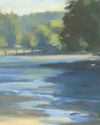
Movement in composition
Through an analysis of three masterworks, landscape painter and noted author MITCHELL ALBALA shows how you can animate landscape composition with movement
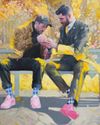
Shane Berkery
The Irish-Japanese artist talks to REBECCA BRADBURY about the innovative concepts and original colour combinations he brings to his figurative oil paintings from his Dublin garden studio

The Working Artist
Something old, something new... Our columnist LAURA BOSWELL has expert advice for balancing fresh ideas with completing half-finished work
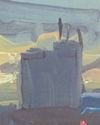
Washes AND GLAZES
Art Academy’s ROB PEPPER introduces an in-depth guide to incorporating various techniques into your next masterpiece. Artwork by STAN MILLER, CHRIS ROBINSON and MICHELE ILLING

Hands
LAURA SMITH continues her new four-part series, which encourages you to draw elements of old master paintings, and this month’s focus is on capturing hands

Vincent van Gogh
To celebrate The Courtauld’s forthcoming landmark display of the troubled Dutch master’s self-portraits, STEVE PILL looks at the stories behind 10 of the most dramatic works on display
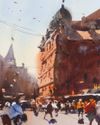
BRING THE drama
Join international watercolour maestro ALVARO CASTAGNET in London’s West End to paint a dramatic street scene
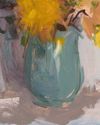
Serena Rowe
The Scottish painter tells STEVE PILL why time is precious, why emotional responses to colour are useful, and how she finds focus every day with the help of her studio wall

Bill Jacklin
Chatting over Zoom as he recovers from appendicitis, the Royal Academician tells STEVE PILL about classic scrapes in New York and his recent experiments with illustration